First annual Critical Mineral Intelligence Centre conference takes place
The conference took place at BGS’s headquarters in Keyworth, Nottinghamshire, on 21 November 2023.
23/11/2023 By BGS Press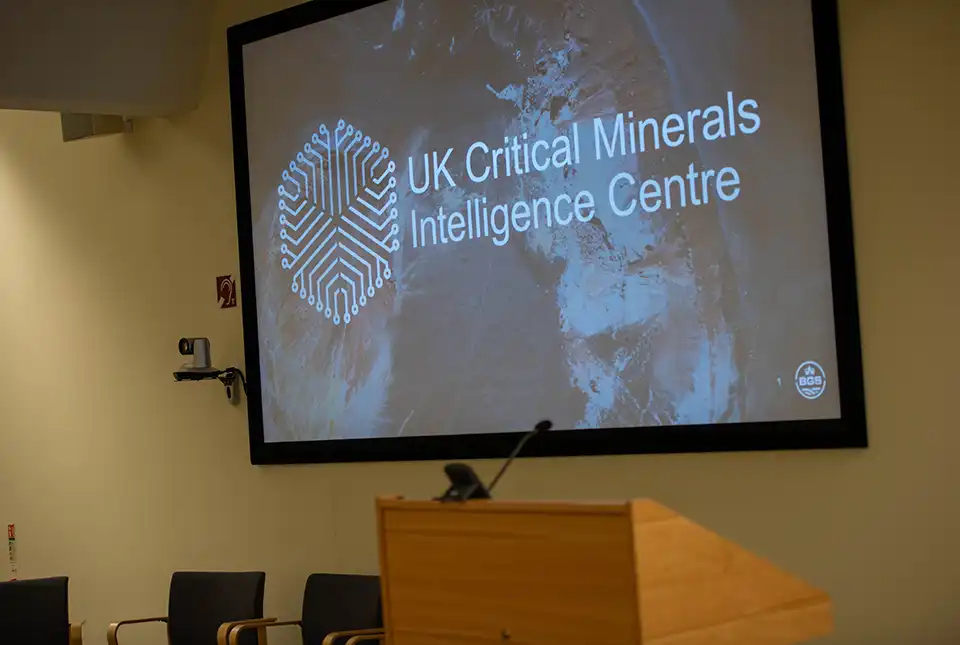
Led by BGS with support from the Department for Business and Trade (DBT), the Critical Minerals Intelligence Centre (CMIC) helps the UK to secure adequate, timely and sustainable supplies of the minerals and metals it requires to transition its economy to net zero emissions in the coming decades.
The conference set out the context and objectives of CMIC, the research and analyses it carries out, both in-house and commissioned from other bodies, and its engagement with UK Government and industry.
To open the conference, Nursrat Ghani MP, Minister of State at the Department for Business and Trade (DBT), provided a virtual opening address on the importance of critical minerals to the UK, highlighting that the country is committed to securing the supply of critical minerals. BGS Director Dr Karen Hanghøj then addressed the conference to talk about the role of BGS and its wider minerals research.
In hosting CMIC, BGS is able to build on its extensive expertise and knowledge, considerable international experience and ability to work with a broad range of research partners to give impartial advice to both Government and industry on reducing the risk of disruption to our critical mineral supply chains.
Dr Karen Hanghøj, BGS Director.
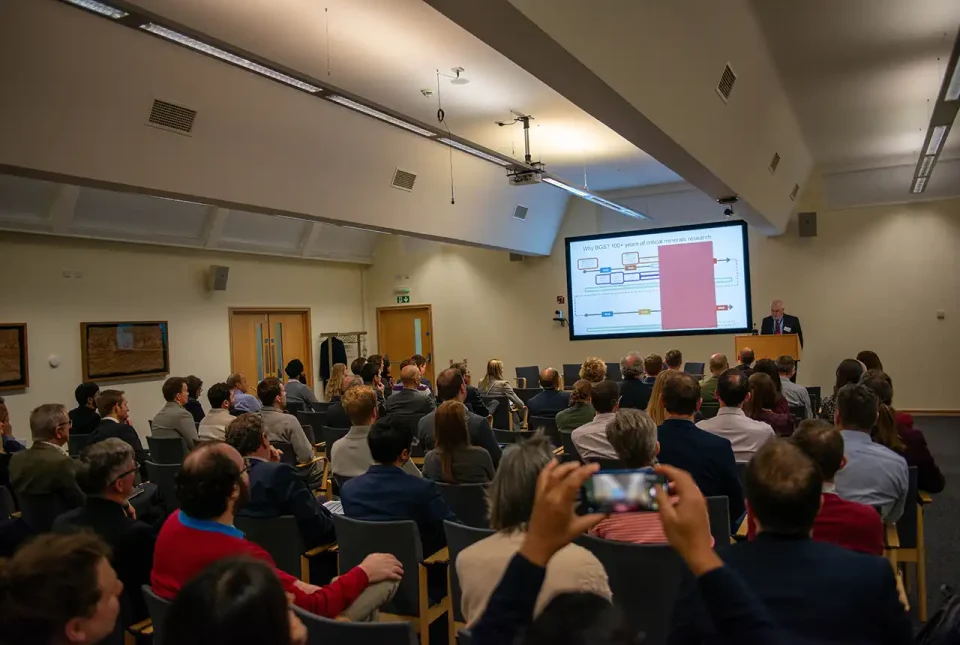
Andrew Bloodworth speaking during the CMIC conference. BGS © UKRI.
A number of other speakers also took to the floor at the conference, including Andrew Bloodworth, the interim CMIC Director, who took an in-depth look at the objectives, research, analysis and overview of the second year of the work programme.
At a time when the global economy is moving towards net zero and when geopolitical tensions have grown significantly, the information and insight provided by CMIC on possible risks associated with the UK’s critical mineral supply are important for informing decisions relating to our economic growth and national security.
Andrew Bloodworth, interim CMIC Director.
Dr Pierre Josso, deputy director at CMIC, then spoke about the updated methodology and the timescales for the next criticality assessment. There was also an expert panel discussion on the future direction of CMIC that featured:
- Karen Hanghøj, BGS Director
- Matt Hatfield, head of policy of critical minerals, Department of Business and Trade
- Emma Schofield, platinum group metals research fellow at Johnson Matthey
- Simon Thompson, BGS Board member
The panel discussed:
- future supply and demand for critical minerals
- long lead times for mining projects
- the role of CMIC in helping investors understand risk
- the likely nature of a more circular economy for critical minerals
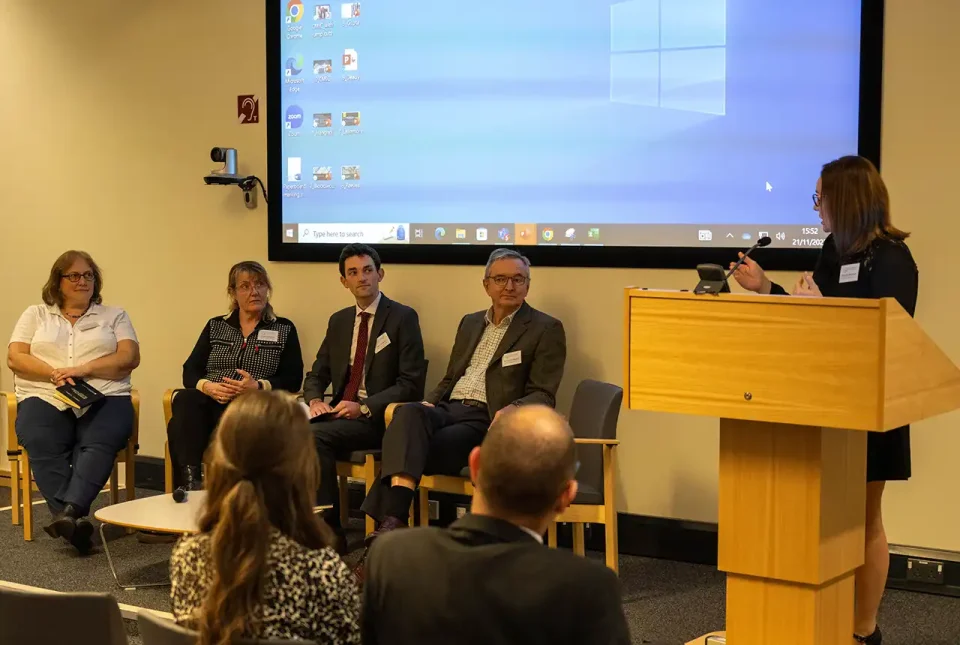
The panel discussion at the CMIC conference. Left to right: Emma Schofield, Karen Hanghøj, Matt Hatfield, Simon Thompson and Michelle Bentham. BGS © UKRI.
In addition to providing an opportunity for the delegates to comment and ask questions, the panel also highlighted the future priorities for CMIC, including focusing on UK manufacturing and a thorough analysis of supply chains.
Following the panel, there were closing reflections from Prof Julia Sutcliffe, Chief Scientific Advisor at DBT, who reinforced the Government’s commitment to securing the supply of critical minerals and the role that CMIC‘s strategy has played in getting us where we are today.
The UK Critical Minerals Intelligence Centre (CMIC) supports the UK in securing adequate, timely and sustainable supplies of the minerals and metals it requires to transition its economy in the coming decades to net zero emissions.
Led by BGS with support from the Department for Business and Trade (DBT), we work together with universities and private and public sector partners to gather and analyse intelligence on the supply and demand of critical minerals, their global value chains and use by UK industry. Our aim is to guide decision making by Government and industry to mitigate risks to supply security, helping to deliver economic prosperity and create opportunities for UK businesses in critical mineral supply chains, domestically and internationally.
The Department for Business and Trade (DBT) unifies what was the Department for International Trade and the business-facing parts of what was the Department for Business, Energy & Industrial Strategy (BEIS).
It brings sector, market and regulation experts together with world-class trade negotiators and business-support teams across the UK and overseas. This is to make the UK the best place to start and grow a company — helping create the business growth that contributes to better jobs and higher wages and living standards.
Relative topics
Related news

Funding awarded to map the stocks and flows of technology metals in everyday electronic devices
12/02/2026
A new BGS project has been awarded Circular Electricals funding from Material Focus to investigate the use of technology metals in everyday electrical items.

New UK/Chile partnership prioritises sustainable practices around critical raw materials
09/02/2026
BGS and Chile’s Servicio Nacional de Geología y Minería have signed a bilateral scientific partnership to support research into critical raw materials and sustainable practices.

Extensive freshened water confirmed beneath the ocean floor off the coast of New England for the first time
09/02/2026
BGS is part of the international team that has discovered the first detailed evidence of long-suspected, hidden, freshwater aquifers.

Funding secured to help mitigate ground risk in UK construction sector
05/02/2026
The BGS Common Ground project has been awarded new funding to help unlock the value of ground investigation data.

Can sandstones under the North Sea unlock the UK’s carbon storage potential?
02/02/2026
For the UK to reach its ambitious target of storing 170 million tonnes of carbon dioxide per year by 2050, it will need to look beyond the current well-studied geographical areas.

Quaternary UK offshore data digitised for the first time
21/01/2026
The offshore wind industry will be boosted by the digitisation of a dataset showing the Quaternary geology at the seabed and the UK’s shallow subsurface.

Suite of ten new soil reference materials released
02/01/2026
BGS has a longstanding track record of producing high-quality reference materials and has released ten new soil reference materials.

Perth and Kinross tops the UK’s earthquake activity charts for 2025
29/12/2025
Seismologists at BGS have published data on the number of seismic events over the past 12 months with over 300 earthquakes recorded.

BGS awarded funding to support Malaysia’s climate resilience plan
17/12/2025
The project, funded by the Foreign, Commonwealth & Development Office, will focus on minimising economic and social impacts from rainfall-induced landslides.
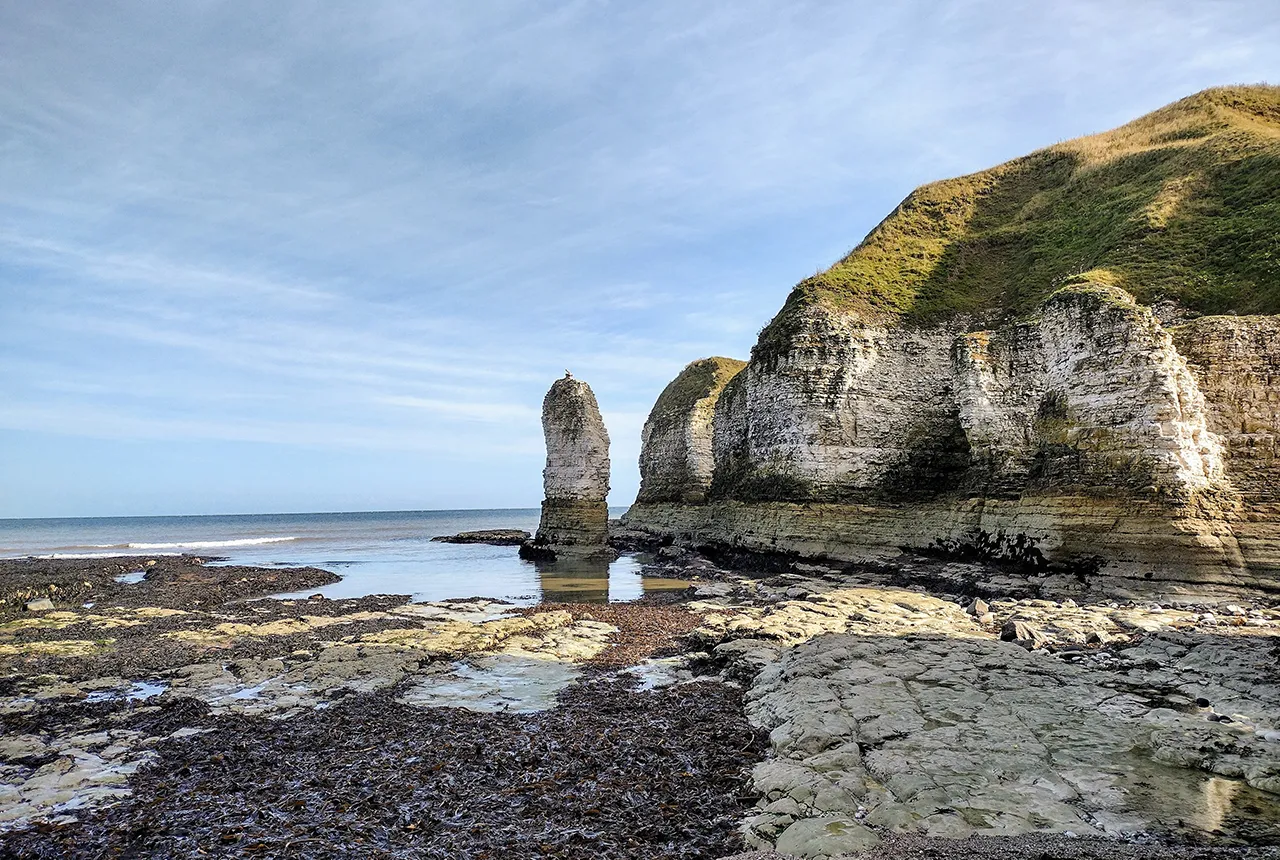
New geological maps of the Yorkshire Wolds to better inform groundwater management and policy decisions
17/12/2025
The new mapping provides crucial data on localised geological issues that may assist in protecting water supplies.
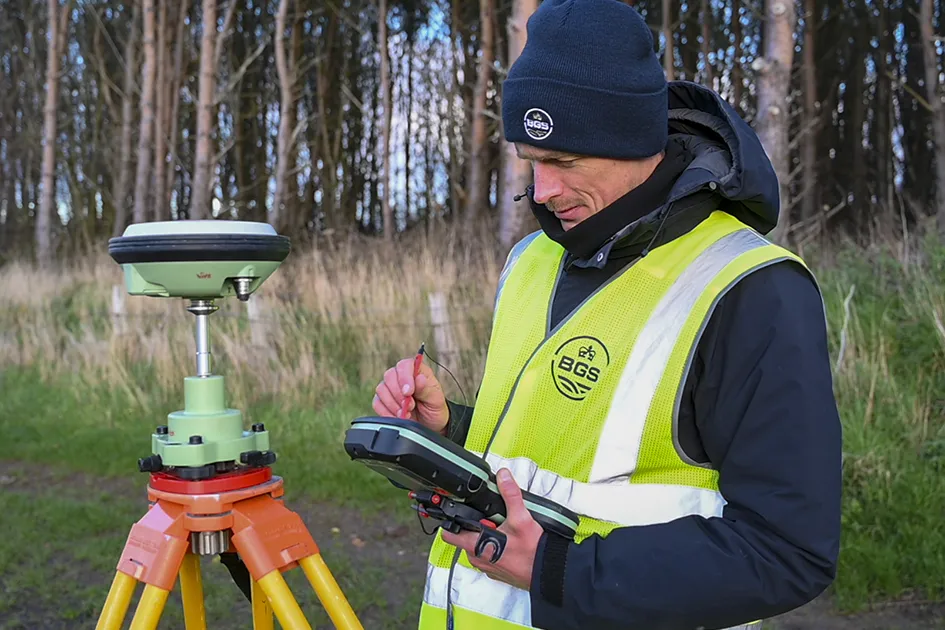
‘Three norths’ set to leave England and not return for hundreds of years
12/12/2025
The historic alignment of true, magnetic, and grid north is set to leave England, three years after they combined in the country for the first time since records began.
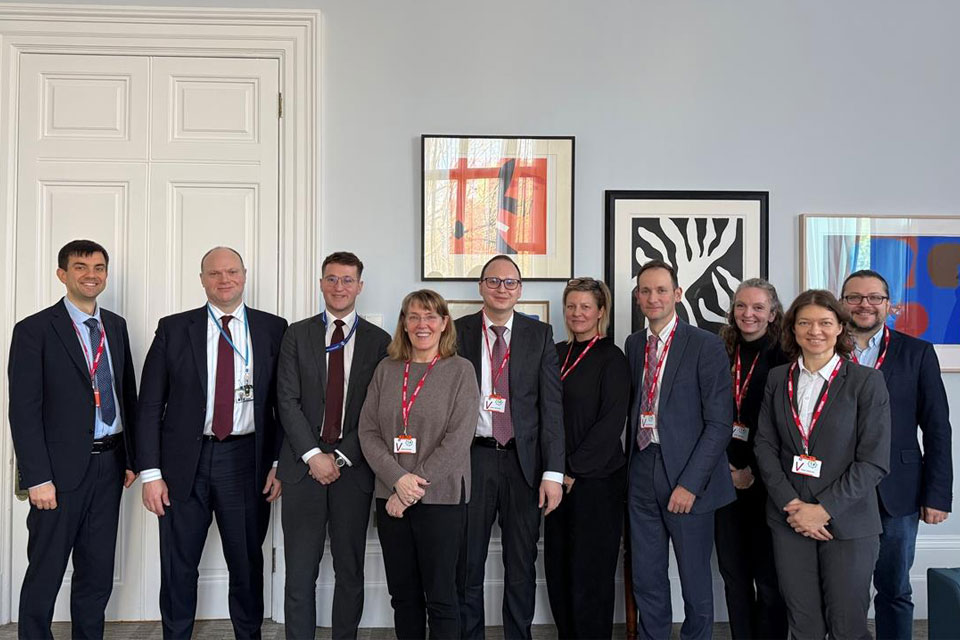
BGS agrees to establish collaboration framework with Ukrainian government
11/12/2025
The partnership will focus on joint research and data exchange opportunities with Ukrainian colleagues.




